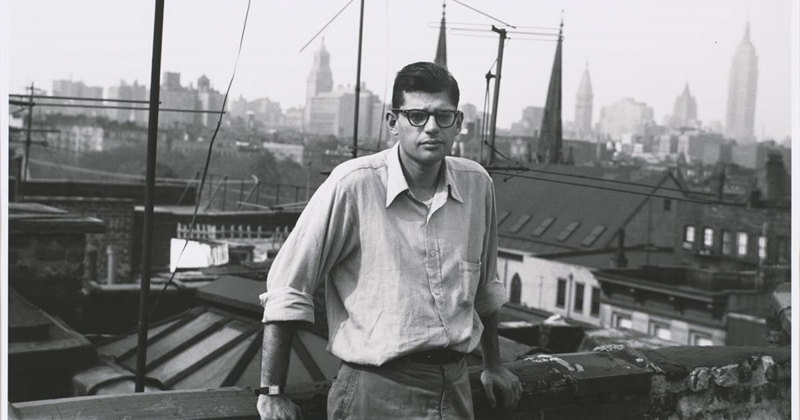In November 1956, “Love Me Tender”introduced Elvis Presley as an actor. By that time he had already made his TV debut as a performer on “Louisiana Hayride,” singles like “That’s All Right” were playing nationwide, his live shows were causing riots, and the shrewd Col. Tom Parker had taken over his management. More importantly, Elvis’s first appearance on “The Ed Sullivan Show” (performing “Love Me Tender”) on September 9 had exposed him to 60 million viewers, most of whom would be curious to see this rock ‘n’ roll phenomenon on the big screen.
The Sullivan appearance came during a break in filming—Parker had already gotten a studio contract for Elvis, who was loaned out to Twentieth Century Fox for this Western—and to take advantage of Presley’s popularity, the studio scrapped the original title of the film (“The Reno Brothers”) and replaced it with the title of one of four songs that Elvis sings in this post-Civil War Western. No songs were originally planned for the film until the studio brass realized that they’d be fools not to exploit Presley’s off-the-charts name recognition.
Though Elvis didn’t get top billing, they featured him on the movie poster with his guitar, and “Love Me Tender” did well at the box office. It was panned by critics, though, and that trend continues.
To be honest, “Love Me Tender” is one of many films that fall somewhere between a 6 and a 7 on the Movie Met scale. It’s above average, but maybe only slightly—something that’s clear if you can mentally remove Elvis from the picture.
Without The King, “Love Me Tender” is a decent Western that has more stand-and-talk moments than shoot-‘em-ups. It’s slow in spots, and we won’t even get into an ending that serves up a heaping portion of schmaltziness. As I watched, I found myself thinking 6 . . . no 7 . . . no 6 . . . no 7 . . . and that’s where the needle finally landed, though it could have gone either way.
The screenplay comes from Robert Buckner (“Dodge City”), but there’s considerably more melodrama here than in that classic Western. What else can there be when the film’s main focus is a romantic triangle involving simmering, suppressed love?
Richard Egan gets top billing as Vance, who returns home after fighting with a guerrilla-style Confederate unit alongside two brothers, only to discover that the love of his life (Debra Paget) married his stay-behind youngest sibling, Clint (Elvis), after his family received word that the brothers in uniform had been killed in action.
The only complication to an otherwise straight romantic triangle story comes from the soldiers’ last act: the robbing of a Union payroll train after the war was officially over, though Vance and his men didn’t know that. They decide to split up the money and go their separate ways, which leaves the door open for former saddlemates and pursuing Union soldiers to disrupt the Reno family reunion.
The acting is decent, and audiences will see plenty of faces who will later become familiar—like James Drury (“The Virginian”), Neville Brand (“Laredo”), Dick Sargent (“Bewitched”), and L.Q. Jones (“Cheyenne”).
In the end, it’s at least as good as other Buckner screenplays like “The Oklahoma Kid” and “Santa Fe Trail,” and it starts a whole string of Elvis movies with some familiar elements. Like, I’m pretty sure that Elvis’s swivel-hipped gyrations weren’t standard moves for performers at Western socials, nor were the crowds exclusively women who screamed. But we get that here, and it’s a preview of coming attractions. It’s also a distraction, though not as bad as you’d think.
“Love Me Tender” has a runtime of 89 minutes and is not rated—though it would probably be PG for violence.
Video:
Fox opted for a 33MPBS AVC/MPEG-4 transfer to a 50GB disc, and it looks great. There’s just enough filmic grain to please purists, but an otherwise deep-contrast black-and-white presentation that has perfect black levels for showcasing detail in HD.”Love Me Tender” is presented in 2.35:1 aspect ratio.
Audio:
The audio is an English DTS-HD MA 5.1, with an additional option of English DTS-HD MA 1.0 for those who prefer their old movies to stay closer to the original Mono, and a Spanish language option in 1.0. Subtitles are in English SDH, Spanish and French. The visuals are solid enough that I preferred the 5.1 track.
Extras:
Included here are features from the 2006 DVD release, chief among them a commentary from Elvis historian Jerry Schilling, who also relates personal stories about Elvis—terrific stories, in fact. Included too are the featurettes from that DVD release: “Elvis Hits Hollywood,” “The Colonel & the King,” “Love Me Tender: The Birth & Boom of the Elvis Hit,” and “Love Me Tender: The Soundtrack.”
Bottom line:
This above-average Western wouldn’t be nearly as beloved if it wasn’t Elvis Presley’s first film. But it’s entertaining, and you can see, still, what audiences saw then: that for a rock ‘n’ roller, this young man could act just as well as anyone else in the picture.


